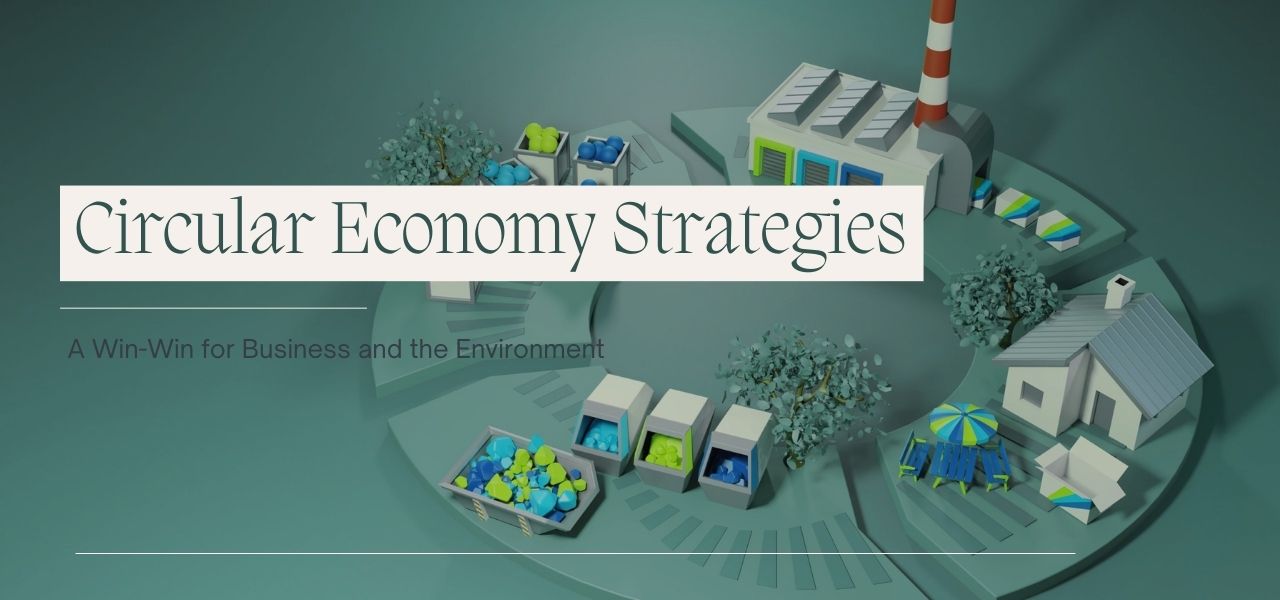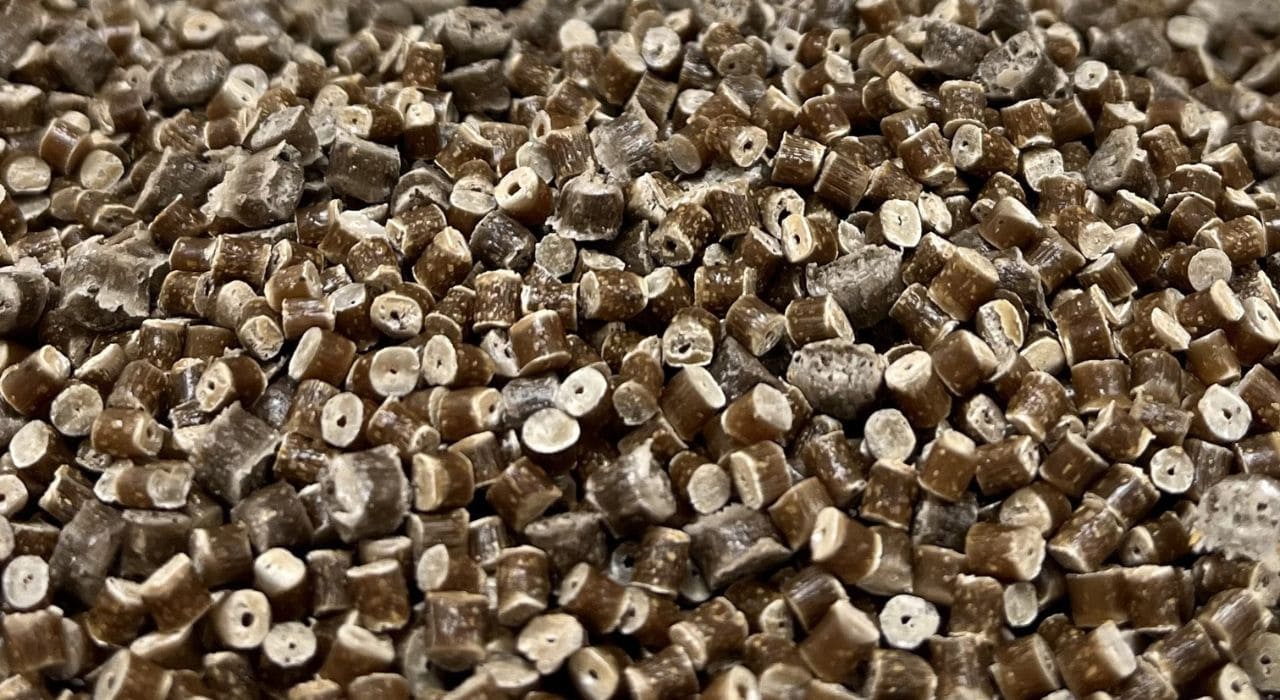Circular Economy Strategies: A Win-Win for Business and the Environment

In today's world, businesses have a responsibility to operate in a sustainable and environmentally friendly manner. One way to achieve this is through the implementation of circular economy strategies, which prioritize the use of resources in a closed-loop system. By doing so, businesses can reduce waste, save money, and minimize their impact on the environment.
In this blog, we will explore the benefits of circular economy strategies for both businesses and the environment. We will also discuss how businesses can implement these strategies, including the use of carbon materials and innovative materials like plant-based plastic produced by AirX, a leading company in carbon-negative materials.
Benefits of Circular Economy for Businesses
The circular economy is an economic system that aims to minimize waste and maximize the use of resources through a closed-loop system. It offers many benefits for businesses, such as reducing costs, improving sustainability, and increasing customer loyalty.
First and foremost, a circular economy can help businesses reduce costs. By adopting a circular approach, businesses can optimize their use of resources, reduce waste, and save money on raw materials and waste disposal. For example, a company can adopt a closed-loop system for its manufacturing process by reusing or recycling its waste materials. This can reduce the need to purchase new materials, which can save money in the long run.
The circular economy can also improve sustainability for businesses. By reducing waste and minimizing resource consumption, businesses can reduce their environmental impact and contribute to a more sustainable future. Customers are becoming increasingly environmentally conscious, and businesses that demonstrate a commitment to sustainability are more likely to attract and retain customers.
In addition, a circular economy can stimulate innovation and new business opportunities. By rethinking their business models and exploring new ways to use resources, businesses can create new products and services that meet the needs of a changing market. This can help businesses stay competitive and adapt to changing consumer preferences.
The circular economy can also enhance the reputation of businesses. By demonstrating a commitment to sustainability and environmental responsibility, businesses can build trust and loyalty among customers, employees, and stakeholders. This can enhance their brand reputation and increase their value in the marketplace.
Finally, the circular economy can help businesses contribute to a more resilient and stable economy. By reducing their reliance on finite resources and adopting sustainable practices, businesses can help create a more stable and resilient economy that is less vulnerable to resource scarcity and price volatility.

Benefits of Circular Economy for the Environment
The circular economy is a sustainable and regenerative approach that aims to reduce waste, pollution, and the depletion of natural resources. It involves reusing, repairing, and recycling products and materials to create a closed-loop system where nothing goes to waste. The benefits of a circular economy for the environment are numerous and include:
- Reduced waste: The circular economy model aims to reduce waste by reusing and recycling materials, which leads to less landfill space and less pollution.
- Resource conservation: By recycling and reusing materials, the circular economy helps conserve natural resources, such as water, energy, and raw materials.
- Reduced carbon emissions: This model promotes the use of renewable energy sources and sustainable production methods, which help reduce carbon emissions and mitigate climate change.
- Biodiversity preservation: By reducing waste and pollution, the circular economy helps preserve biodiversity and ecosystems, which are essential for human well-being.
- Cleaner air and water: Circular economy reduces the amount of waste that is sent to landfills and incinerators, which helps improve air and water quality.
- Improved public health: Circular economy helps reduce exposure to toxic chemicals and pollutants, which can have harmful effects on human health.
- Economic benefits: A circular economy can generate new business opportunities and create jobs, while also reducing costs associated with waste management and resource extraction.
Circular Economy Strategies for Businesses
By designing out waste and reducing the consumption of finite resources, circular economy strategies offer a win-win for businesses and the environment. Here are some strategies that businesses can implement:
- Adopt a Zero Waste Approach: Businesses can adopt a zero-waste approach by reducing waste, reusing resources, and recycling materials. By optimizing the use of resources, businesses can reduce costs, conserve resources, and minimize waste.
- Use Carbon Negative Materials: Using carbon-negative materials is an optimal solution to reduce the carbon footprint of a business's supply chain. By using these materials that are sourced from carbon, such as wood or agricultural waste, businesses can minimize their carbon emissions and reduce their environmental impact.
For instance, AirX produces plant-based plastic made from by-product agriculture, which captures carbon during the growth process, making it carbon-negative. When businesses use this material, it can help offset the carbon emissions from other parts of the supply chain, resulting in a more sustainable and environmentally friendly solution.

- Collaborate with Suppliers: Collaboration with suppliers is essential to a circular economy. By working with suppliers to optimize the use of resources and minimize waste, businesses can improve the sustainability of their supply chain and reduce their environmental impact.
- Design for Sustainability: Businesses can design products and services for sustainability by prioritizing durability, recyclability, and the use of renewable resources. By designing for sustainability, businesses can reduce waste, conserve resources, and create long-lasting products.
>>> Learn more: Bio-PET Plastic vs. Traditional PET Plastic: Which is More Sustainable?
Contact us
AirX is the world's first carbon-negative bio-material made from coffee grounds.
We specialize in producing bio-based composites using recycled carbohydrates derived from by-products such as coffee grounds, coconut husk, husk, and bamboo. Our goal is to promote sustainability through the use of eco-friendly materials.
We are always here to help and provide the best service possible. If you have any questions or would like to receive advice and feedback directly from our sales staff, please do not hesitate to contact us. You can reach us through:
- Whatsapp: +84 969 742 950
- Email: [email protected]
We look forward to hearing from you!

